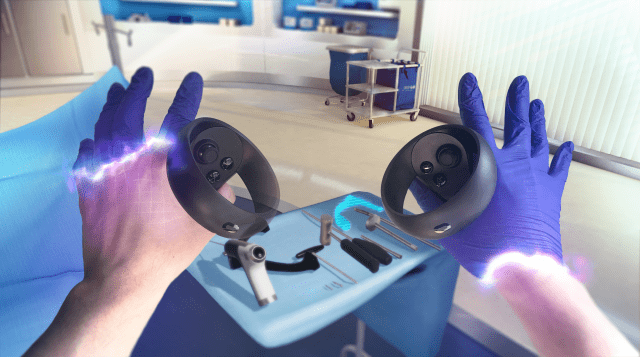Osso VR, the leading virtual reality-based surgical training company, has launched the world’s first VR-based multimodal assessment experiences. In addition to adding this capability within its platform, Osso’s platform has also launched in multiple new languages in addition to English, including Japanese, Spanish, German and French to broaden access in the 30+ countries in which it is currently utilized.

A landmark study from Birkmeyer et al. in the New England Journal of Medicine found that improved surgical skill led to “fewer postoperative complications and lower rates of reoperation, readmission, and visits to the emergency department.” Having insight into surgical ability is key to optimizing patient outcomes however we currently lack an easy and scalable method for doing so.
Osso VR is the first surgical training platform to take a multi-modal approach to assessment in a milestone-based training model. This approach for the first time allows users to assess their knowledge of specific workflows, including what to do when things go wrong (as they unfortunately sometimes do in the OR!) In addition, the platform assesses their ability to perform steps with a high degree of haptic enhanced fidelity to meet standards of care. At the same time, it allows them to make mistakes while ultimately ensuring their long-term success. Finally, Osso’s unique and proprietary milestone-based proficiency system guides healthcare providers along an encouraging journey.
“As a practicing surgeon it is difficult for me to get a sense of where I have opportunities to improve,” said Justin Barad, MD, CEO of Osso VR. “I had a vision when starting Osso VR that shifting from intuitive and subjective assessments towards highly accessible objective measurement could transform how we deliver procedural care around the world. When the results started coming back from independent validation studies I was blown away by the impact this information can have on the outcome of a procedure.”
Osso VR’s surgical training technology provides on-demand, educational experiences that are effective, repeatable, and measurable to help surgeons reach proficiency with emerging surgical techniques and technologies. Osso VR has been experiencing rapid growth over the past year to meet the increased demand in virtual training driven by the pandemic-fueled need for digital training models.
Osso VR works with industry leaders like Johnson & Johnson, Stryker, and Smith & Nephew to ensure that patients have safe access to the highest-value procedures. As part of its recent growth, the company recently expanded into additional specialties, including endoscopy, interventional procedures, and more. Osso VR is home to the world’s largest surgical training library, offering 120+ modules in 10+ specialties.
Osso VR is at Booth 615 at the 2021 AAOS event from Aug. 31-Sept. 3, 2021.
